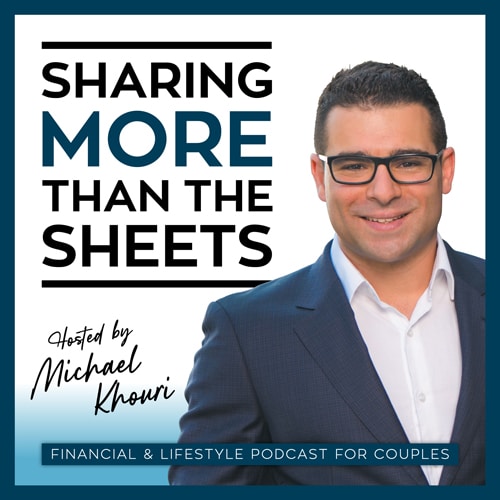Have we managed to flatten the curve? Which new rules have been implemented? Have any of them been relaxed? In a world caught in the grip of a pandemic, our eyes are glued to the news. While that makes sense, many of us could now say that catching up with the latest headlines only serve to leave us feeling worse. A survey by the American Psychological Association revealed more than half of those interviewed said news consumption made them feel stressed out. Despite this, one in ten adults admitted to dipping into the headlines as much as every hour they’re awake. So are we masochists? According to neuroscientist Tali Shalot, we’re merely human.
The three motives
Being unable to tear yourself away from the news, regardless of what effect it might have on our mental health is perfectly predictable says Shalot in an article for Psychology Today. After all, it rewards the three motives that drive us to seek information, the first being “instrumental utility” – wanting to find something useful. “With the pandemic, you might be thinking, ‘If I get more information, I can plan better or protect myself better’,” she says.
The second motive is “cognitive utility” – using what we find to better understand what’s going on. “In our current circumstances, there is a lot of uncertainty, and we are trying to reduce it by seeking more information. Although, I think that the information we are getting currently might lead us to experience even more confusion and uncertainty,” she says.
The third motive? This is “hedonic utility” – searching for information that could make you feel a certain way. “For example, you might keep watching the news with hopes of hearing something good, like a new vaccine or progress with our fight with the virus,” says Shalot. This motive isn’t always positive, however. If you have a negative opinion, you might search the internet until you find news that aligns with it. A recent global study published in the Proceedings of the National Academy of Sciences found that, on average, people pay more attention to negative news. The researchers suggest our bias towards negative news drives the media’s coverage of it, creating a vicious cycle of gloom we seemingly can’t get enough of.
Time to take a break
Clearly, less news means less stress so should we ignore it altogether? Psychologist Arash Emamzadeh says going “no news” isn’t necessary, but we’ll feel better if we make a point of consuming it more mindfully. “For instance, take a moment to consider whether you really need to know the graphic details of how a serial killer killed a dozen people, or need to be informed daily of how many new cases of the coronavirus are suspected in some country you do not plan to visit,” he says. If the answer is nope, change the channel or don’t click that link.
Secondly, Emamzadeh believes you should balance the bad news with lots of good. “If you look hard enough, you will find plenty of positive news,” he says. This could be inspirational stories of those surviving and thriving or medical breakthroughs or anything that doesn’t make you worse for knowing about it. “Many of these positive news stories are not reported by major news media because good news does not sell as well as bad news. Fear sells very well. So you need to purposefully search for good news and consume positive news regularly.”
Ultimately, it’s not a case of no news is good news – just that a focus on more good news might be best for your mental health.
Wealthness Pty Ltd ABN 13 231 248 112 [t/a Better Financial Planning Australia] is a Corporate Authorised Representative of Infocus Securities Australia Pty Ltd ABN 47 097 797 049 AFSL No. 236523. It is important to be aware that Better Financial Planning Australia is not authorised by Infocus to provide advice relating to credit services or property advice. Infocus is not responsible for any advice outside of the scope of this authorisation and should you wish to act on any of this general information, please first seek professional financial advice.
Wealthness Pty Ltd t/as Better Financial Planning Australia will endeavour to update the website as needed. However, information can change without notice and Wealthness Pty Ltd t/as Better Financial Planning Australia does not guarantee the accuracy of information on the website, including information provided by third parties, at any time.
This information is of a general nature only and neither represents nor is intended to be specific advice on any particular matter. Infocus Securities Australia Pty Ltd strongly suggests that no person should act specifically on the basis of the information contained herein but should seek appropriate professional advice based upon their own personal circumstances. Although we consider the sources for this material reliable, no warranty is given and no liability is accepted for any statement or opinion or for any error or omission.
Wealthness Pty Ltd t/as Better Financial Planning Australia does not give any warranty as to the accuracy, reliability or completeness of information which is contained in this website. Except insofar as any liability under statute cannot be excluded, Wealthness Pty Ltd t/as Better Financial Planning Australia and its employees do not accept any liability for any error or omission on this website or for any resulting loss or damage suffered by the recipient or any other person.
Wealthness Pty Ltd (ACN 613 313 250) [t/a Better Financial Planning Australia] Corporate Authorised Representative of Infocus Securities Australia Pty Ltd ABN 47 097 797 049 AFSL Licence No. 236523.
Source: HealthlogixJULY 16, 2020



